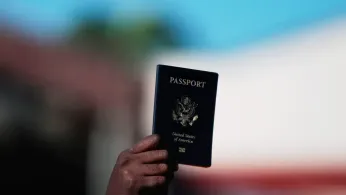
Oct 20
US Airlines Ordered to Disregard ‘X’ Gender Markers as Passport Policy Clash Intensifies
READ TIME: 4 MIN.
On October 14, 2025, a significant shift in US federal policy went into effect: airlines operating in the United States are now required to submit only “M” (Male) or “F” (Female) in the sex field of Advance Passenger Information Systems (APIS) transmissions to US Customs and Border Protection (CBP), regardless of the gender marker shown on a traveler’s official passport. The CBP system will reject any other entries, including the gender-neutral “X” marker, returning an “X Response–Insufficient Information” error and demanding resubmission with a binary designation. This change is a direct result of Executive Order 14168, “Defending Women from Gender Ideology Extremism and Restoring Biological Truth to the Federal Government,” signed on January 20, 2025, by President Donald Trump. The order mandates that only binary sex categories—male and female—are recognized by the federal government for official purposes, including travel and identification documentation .
The policy shift has created considerable uncertainty and distress for nonbinary, transgender, and intersex travelers whose passports may bear an “X” marker—a designation recognized by the US Department of State as valid since April 2022, and adopted by several US states and numerous countries, including Canada, Australia, and Germany . While these passports remain technically valid for entry into the United States, the APIS submission system no longer accommodates any marker outside of “M” or “F,” effectively forcing airlines to override the passport’s stated gender and potentially misgender their passengers .
Operationally, airlines are in a difficult position: they must compare the travel documents presented by passengers with the data transmitted to CBP, yet now face a system that will reject nonbinary designations. In practice, this means “X” marker holders may be assigned a binary gender by airline staff, often without their input, raising concerns of misgendering, privacy violations, and emotional distress. There is currently no official guidance from CBP on how carriers should make these determinations or communicate with affected travelers .
Executive Order 14168 represents a marked departure from previous US policy, which permitted the use of “X” gender markers on federal documents and recognized the importance of inclusive documentation for transgender, nonbinary, and intersex individuals. The order’s stated aim is “restoring biological truth” to federal records; critics argue it erases the existence of nonbinary and gender-diverse people, undermining their rights and dignity .
Under previous guidelines, US passports could display “M,” “F,” or “X” as the sex marker, with the Department of State providing instructions for updating gender designation based on self-identification, rather than medical documentation . Many states also issue driver’s licenses and IDs with “X” or other nonbinary markers—a practice that is not affected by federal passport policy, but is now in conflict with the requirements for federal air travel documentation, particularly in light of the REAL ID Act, which will be enforced for domestic flights starting in May 2025 .
For air operators, the inability to transmit “X” gender markers creates compliance risks and possible liability. Airlines are responsible for ensuring that the travel documents match the data sent to CBP, yet the federal system now forces a binary designation. The lack of guidance on handling these conflicts leaves carriers vulnerable to delays, passenger complaints, and potential litigation. International carriers, in particular, must navigate a patchwork of gender marker policies: Canada, for example, warns its citizens that countries like the US may not accept “X” markers, advising travelers to check entry requirements before departure .
Several advocacy organizations have called for urgent clarification and reversal of the policy, emphasizing that exclusion of nonbinary gender markers not only disrupts travel but also violates the rights and safety of LGBTQ+ individuals. They note that misgendering at borders and in travel documentation can lead to increased scrutiny by security personnel, emotional distress, and even denial of entry or boarding .
LGBTQ+ rights organizations, including Lambda Legal and the National Center for Transgender Equality, have condemned the directive as discriminatory and regressive, arguing that it undermines years of progress toward legal recognition and dignity for transgender, nonbinary, and intersex people. They stress that inclusive identification documents are essential for safety, privacy, and equal access to public services, including air travel. Advocates are encouraging affected travelers to use alternative forms of ID where possible, such as REAL ID-compliant state documents, and to seek legal assistance if they encounter difficulties .
The new policy also raises broader questions about the intersection of federal and state law. While many states allow “X” markers on driver’s licenses and IDs, the federal government’s refusal to recognize these markers for air travel and border entry creates a conflict that may require judicial intervention or further legislative action. Advocacy groups are preparing legal challenges, arguing that the order violates constitutional protections and anti-discrimination statutes .
For transgender, nonbinary, and intersex people planning to travel to or within the United States, experts recommend:
- Confirm that travel documents used for boarding and border entry match binary gender markers (“M” or “F”) to avoid delays or denial.
- Consider using a REAL ID-compliant driver’s license or passport card if available in your state, as these may be less likely to trigger scrutiny.
- Review the documentation requirements in your state for updating gender markers on official IDs.
- Airlines and travelers should monitor guidance from CBP and advocacy organizations for updates, as the policy landscape remains unsettled.
As the policy continues to generate confusion and concern, pressure is mounting on federal agencies to provide clear guidance and ensure that travel remains accessible to all, regardless of gender identity. The conflict between federal directives and state-level recognition of nonbinary identities highlights the ongoing struggle for LGBTQ+ equality in the United States. As legal and advocacy efforts intensify, the outcome will affect not only the practicalities of air travel but also the broader rights and recognition of gender-diverse people nationwide.






